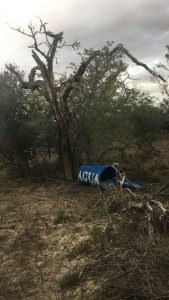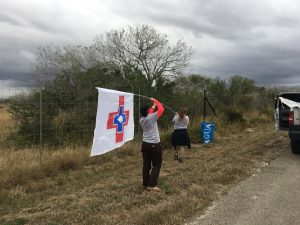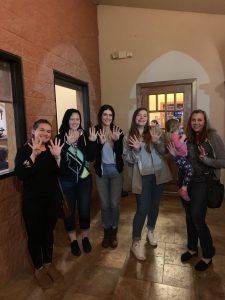It is my first day back in Indiana. Physically, I am here. I slept in my own bed last night, I visited my family today, and now I am sitting in my apartment writing this blog. But my mind is still in Texas. My thoughts and feelings are back in Falfurrias, with the migrant communities. I am a person who takes things to heart, and it is not easy fo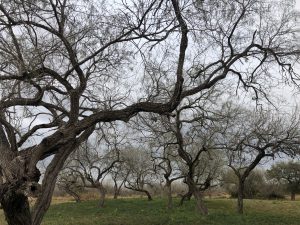 r me to let things go. This is how I feel about the ongoing project in Texas and the situation as a whole, that is happening at the border. I can’t just ignore it now. Not that I have ever ignored it – but now I have seen it. Now I have been exposed, shoulders deep in the dirt, searching for unidentified migrants. Unidentified migrants who have families somewhere, looking for them. Looking for closure. Looking for any definitive answer about what has happened to them. Even receiving the worst news to a family member of an unidentified individual would be better than receiving no news. How can I throw myself into humanitarian work for a week and a half and allow that to be it? I could never allow this to be the end of what I can do to help.
r me to let things go. This is how I feel about the ongoing project in Texas and the situation as a whole, that is happening at the border. I can’t just ignore it now. Not that I have ever ignored it – but now I have seen it. Now I have been exposed, shoulders deep in the dirt, searching for unidentified migrants. Unidentified migrants who have families somewhere, looking for them. Looking for closure. Looking for any definitive answer about what has happened to them. Even receiving the worst news to a family member of an unidentified individual would be better than receiving no news. How can I throw myself into humanitarian work for a week and a half and allow that to be it? I could never allow this to be the end of what I can do to help.
This trip has added to the list of experiences in my life that have made me feel extremely lucky for what I have. I have a secure immigration status in the US. I have a permanent home. I do not have to fear deportation or being sent back to my home country on a whim. I do not have to worry about a wall separating me from my family. I do not have to worry about dangerous journeys to freedom. I am a middle class girl getting my Master’s degree. I am never hungry. I am never dehydrated. I never go without.
I wonder why. Why do I have all of these things and others do not. Because my parents had enough money and stability to comfortably raise two kids? Because of the color of my skin? Because I happened to be born in one place, a first world country, on the right side of an ocean or border instead of the wrong one.
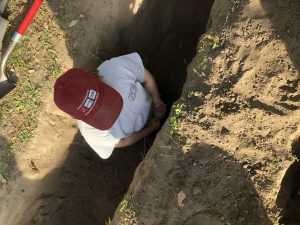 What defines a human being? We are all the same species, no matter what race or nationality. It breaks my heart that some do not see it this way. Whether that be because of money or politics, in my opinion there should be no reason why one human life should be valued more than another. In the scope of human history, we have survived and thrived due to companionship and community. Wars and divides have only set us back. Why can’t there be the amount of compassion that we saw in the South Texas Human Rights Center or the Humanitarian Respite Center in every individual in this world? There would not be divides, there would not be boundaries and borders, but only love and compassion.
What defines a human being? We are all the same species, no matter what race or nationality. It breaks my heart that some do not see it this way. Whether that be because of money or politics, in my opinion there should be no reason why one human life should be valued more than another. In the scope of human history, we have survived and thrived due to companionship and community. Wars and divides have only set us back. Why can’t there be the amount of compassion that we saw in the South Texas Human Rights Center or the Humanitarian Respite Center in every individual in this world? There would not be divides, there would not be boundaries and borders, but only love and compassion.
I want to emphasize that migrants are moving i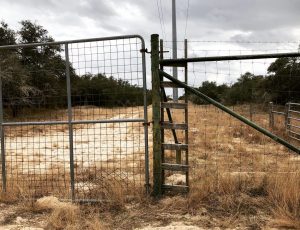 nto the United States to seek ASYLUM. Because where they happen to be in this earth is not safe for their families, their women cannot receive an education, they cannot go to work without fearing that they may not come home, they cannot afford to feed their families. If someone you loved were in this situation, and came to you asking for help, why would you not allow them into your home?
nto the United States to seek ASYLUM. Because where they happen to be in this earth is not safe for their families, their women cannot receive an education, they cannot go to work without fearing that they may not come home, they cannot afford to feed their families. If someone you loved were in this situation, and came to you asking for help, why would you not allow them into your home?
As a forensic science graduate and a human biology student, to me, humanitarian work is the best application of my skills. Using my knowledge of science, archaeology, and skeletal analysis to help people who are less fortunate and who need help that my skills could provide. This trip has enforced this drive in me. Whether it be in Texas or anywhere else in this world, I feel a calling and a need to do this work. To bring closure to families who are in this position is the best outcome I could imagine for my education and training.
I would like to thank the Beyond Borders team, the University of Indianapolis, everyone who donated to our cause, and Dr. Latham for granting me the opportunity to experience this. I have learned so mu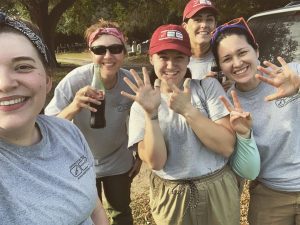 ch practically in my field and socially, too. I feel as though I have more of a purpose than I did 13 days ago. Thank you to everyone who followed our blog along this journey – and I hope you continue to follow in future field seasons.
ch practically in my field and socially, too. I feel as though I have more of a purpose than I did 13 days ago. Thank you to everyone who followed our blog along this journey – and I hope you continue to follow in future field seasons.
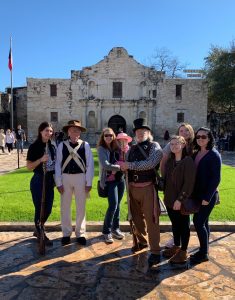
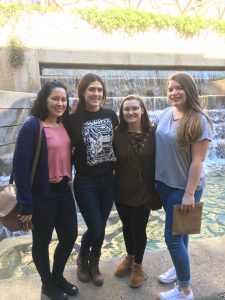
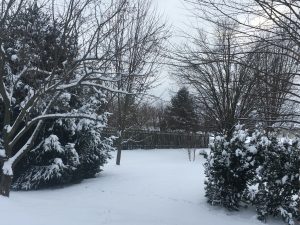
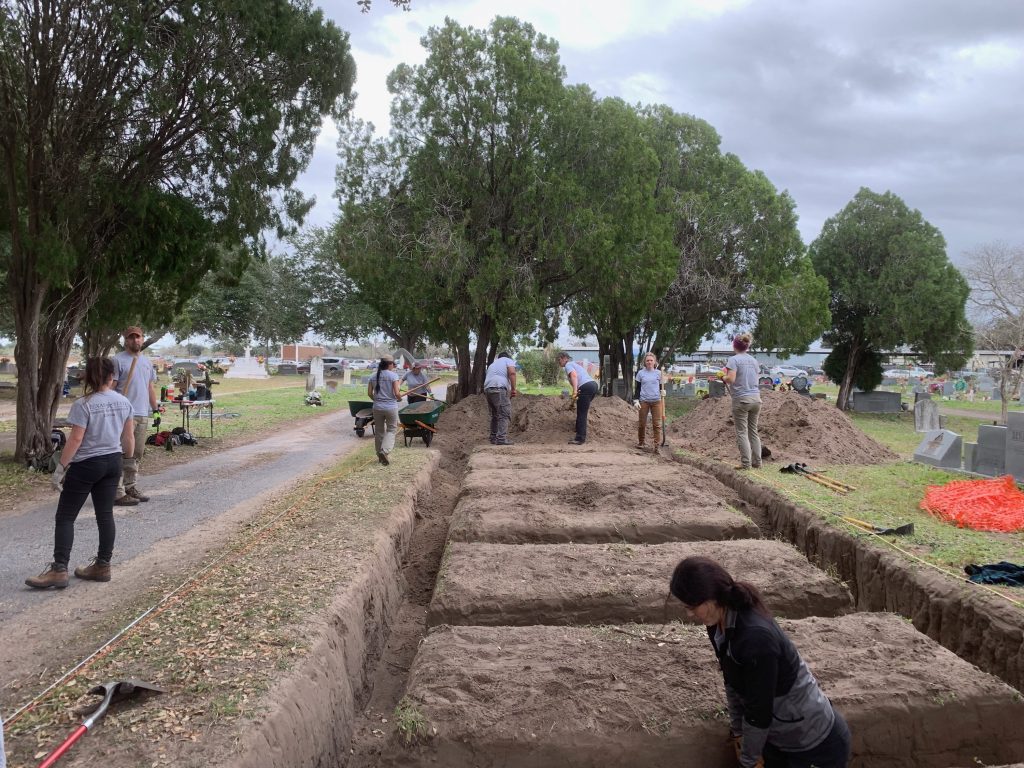
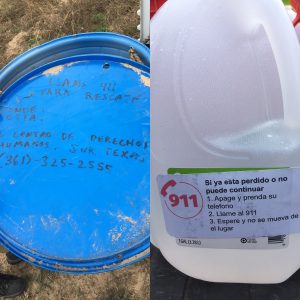 from afar. In addition, the Human Rights Center prints instructions on how to contact them and attaches them to each water bottle in case someone is desperate for help. The lids to the water stations also have contact information, and the GPS coordinate of that water station’s location so they can read it to the person they are contacting if they need assistance. Individuals who stumble upon these may have gone incredibly long periods of time without food and water. Many become lost for days in the thick, desert brushlands, but this route is their only option if they want to remain hidden. These water stations save people’s lives who may otherwise have be reduced to bone within days in the Texas heat.
from afar. In addition, the Human Rights Center prints instructions on how to contact them and attaches them to each water bottle in case someone is desperate for help. The lids to the water stations also have contact information, and the GPS coordinate of that water station’s location so they can read it to the person they are contacting if they need assistance. Individuals who stumble upon these may have gone incredibly long periods of time without food and water. Many become lost for days in the thick, desert brushlands, but this route is their only option if they want to remain hidden. These water stations save people’s lives who may otherwise have be reduced to bone within days in the Texas heat.